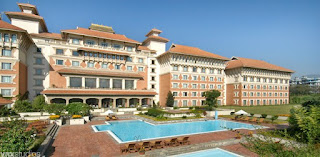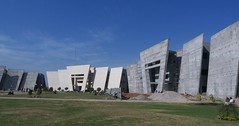There was the annual Biogas Workshop taking place in Kathmandu, Nepal from November 9 -13, 2009 for which i, as Programme Manager, Pakistan Domestic Biogas Programme was invited. It was sponsored by the Asian Development Bank and SNV. Took a flight with a long route, from Islamabad to Doha , Qatar (4 hours), 4 hours layover and then Doha to Kathmandu , Nepal hours). Got some chillout stuff from Doha Qatar
 |
| yes the rooms were awesome |
































